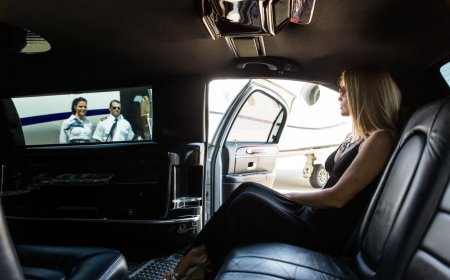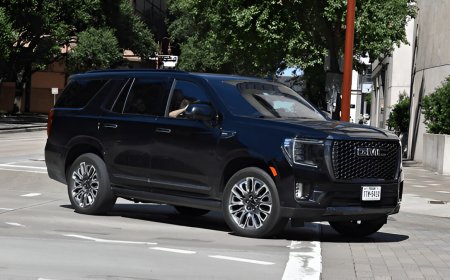How to Find Secret BBQ Joints in Memphis 2025
How to Find Secret BBQ Joints in Memphis 2025 Memphis isn’t just a city—it’s a pilgrimage site for barbecue lovers. Known for its slow-smoked ribs, tender pulled pork, and signature dry rubs, Memphis has long held a revered place in the American barbecue pantheon. But by 2025, the landscape has shifted. The once-hidden, family-run pits once whispered about in local diners and late-night taxi rides
How to Find Secret BBQ Joints in Memphis 2025
Memphis isn’t just a city—it’s a pilgrimage site for barbecue lovers. Known for its slow-smoked ribs, tender pulled pork, and signature dry rubs, Memphis has long held a revered place in the American barbecue pantheon. But by 2025, the landscape has shifted. The once-hidden, family-run pits once whispered about in local diners and late-night taxi rides are now harder to find. Crowds, social media, and food influencers have turned some legendary spots into tourist traps. The real magic? It’s still there—but only if you know where to look, how to ask, and when to show up.
This guide reveals how to uncover the most authentic, secret BBQ joints in Memphis in 2025—the places that don’t advertise, rarely have signs, and serve food that tastes like generations of tradition. Whether you’re a local foodie, a traveling enthusiast, or a culinary researcher, mastering the art of finding these hidden gems will transform your barbecue experience from ordinary to unforgettable.
Forget Yelp rankings and Instagram hashtags. The secrets of Memphis BBQ aren’t in algorithms—they’re in relationships, timing, and local intuition. By the end of this guide, you’ll know exactly how to navigate Memphis’s underground barbecue network, identify the real deal, and avoid the imitation joints that have sprung up to cash in on the city’s reputation.
Step-by-Step Guide
Step 1: Understand What Makes a “Secret” BBQ Joint
Before you start searching, you must define what you’re looking for. A secret BBQ joint in Memphis isn’t just a place without a sign. It’s a spot that operates outside the mainstream food industry. These establishments often:
- Have no website or minimal online presence
- Open only on certain days (often weekends or afternoons)
- Accept cash only
- Are located in non-tourist zones—industrial parks, back alleys, or residential neighborhoods
- Are run by families who’ve been smoking meat for 30+ years
- Don’t offer seating—or have only picnic tables under a canopy
These joints don’t need marketing. Their reputation is built through word-of-mouth, passed down from one generation to the next. The best ones have no menu board. You ask, “What’s good today?” and the pitmaster points to what’s still steaming in the smoker.
Step 2: Visit Memphis During the Right Season
Timing matters more than you think. The best time to hunt for secret BBQ joints is late spring through early fall—specifically between April and October. Why?
During winter, many of these small operations shut down temporarily. The owners take a break, tend to their equipment, or travel. In 2025, even fewer spots are open year-round due to rising fuel costs and labor shortages. Spring and summer are when the pits are firing at full capacity, and the pitmasters are most likely to be present.
Also, avoid major events like the Memphis in May World Championship Barbecue Cooking Contest. While it’s iconic, it draws crowds that flood the city, making it nearly impossible to access the quiet, local spots. Go the week before or after.
Step 3: Talk to People Who Don’t Work in Tourism
The most reliable information won’t come from hotel concierges, Airbnb hosts, or food bloggers. Instead, seek out:
- Gas station attendants in East Memphis or South Memphis
- Auto mechanics in the Orange Mound neighborhood
- Barbers and hairdressers in historic Black neighborhoods
- Local grocery clerks at independent markets like Blythe’s Grocery or Harbert’s Market
These individuals don’t get paid to recommend restaurants. They eat at these places. They know who makes the best burnt ends on a Tuesday afternoon. Ask open-ended questions: “Where do you go when you want real Memphis BBQ?” or “Who’s been smoking meat the longest around here?”
Don’t mention “best BBQ” or “famous spots.” That triggers the tourist response. Instead, use phrases like “the kind your granddaddy used to take you to” or “where they still use hickory logs.” You’ll instantly filter out the fakes.
Step 4: Drive, Don’t Walk
Secret BBQ joints in Memphis 2025 are not clustered in downtown or Beale Street. They’re scattered across neighborhoods most visitors never see. You need a car. Plan routes that take you through:
- Orange Mound
- Frayser
- South Memphis
- Millington (just outside the city limits)
- North Memphis near the old railroad tracks
Look for small buildings with rusted metal roofs, hand-painted signs that say “BBQ” or “Pork & Beans,” and parking lots filled with pickup trucks, not sedans. Many have no address listed on GPS. Use landmarks instead: “next to the abandoned gas station,” “across from the church with the blue steeple,” or “behind the tire shop with the red door.”
Google Maps is unreliable for these spots. Instead, use Waze and look for clusters of vehicles parked outside unmarked buildings. If you see five or more trucks with Tennessee plates and no tourists taking photos, you’re on the right track.
Step 5: Observe the Queue—Or Lack Thereof
Here’s a counterintuitive rule: The best BBQ joints in 2025 rarely have lines. If you see a 45-minute wait outside a place with a neon sign and a menu board, you’re likely at a commercialized version. Real secret spots operate on a first-come, first-served basis, but they don’t advertise hours. You might arrive at 11 a.m. and find the door locked. Or you might arrive at 3 p.m. and find the smoker empty.
Look for signs of activity: smoke rising from a chimney, a man in a white apron wiping his hands, a cooler with a “$10 Pork Sandwich” handwritten sign taped to it. If you see a pickup truck parked nearby with a “BBQ” sign on the tailgate, that’s often a mobile pit—some of the best in the city.
Wait until you see someone walk out with a foil-wrapped bundle. That’s the real indicator. If they’re smiling and not rushing, you’ve found gold.
Step 6: Ask for the “Special” or “Off-Menu” Item
Once you’ve found a likely spot, don’t ask for the menu. Don’t even ask what’s on the menu. Instead, say: “What’s the special today?” or “What do you make when you’re not serving customers?”
At secret joints, the “special” is often the best thing they make—something they only serve when the meat is perfect or when they’ve smoked it extra long. Common off-menu items in 2025 include:
- Beef rib tips smoked 14 hours with applewood
- Smoked chicken thighs glazed with blackberry molasses
- Pork belly burnt ends with house-made pickled okra
- “Pit Boss Platter” — a mix of ribs, sausage, and smoked cheese
Some places will only serve these if you’ve been there before. If you’re new, ask: “Do you ever make the one with the cherry wood?” or “Is the old man still smoking the brisket on Sundays?” Mentioning specific techniques or ingredients shows you understand the craft—and that you’re not just another tourist.
Step 7: Pay in Cash and Tip the Pitmaster
Almost all secret BBQ joints in Memphis 2025 are cash-only. Credit cards? Rare. Venmo? Even rarer. Carry $50–$100 in small bills. If you’re unsure, ask: “Do you take cards?” and if they say “No,” don’t argue. Just smile and say, “I’ll be back tomorrow.”
When you pay, always tip the person who hands you the food—even if they’re not a server. Many are the pitmaster’s son, daughter, or cousin. A $5–$10 tip for a $12 sandwich is not just generous—it’s expected. It shows respect. And it ensures you’ll be remembered.
Don’t just say “thank you.” Say: “This is the real deal.” Or: “My uncle used to smoke like this in ’89.” That kind of recognition builds trust. You’re not a customer—you’re a fellow believer.
Step 8: Return, and Return Again
The final step is the most important: come back. Secret BBQ joints in Memphis don’t reward one-time visitors. They reward regulars. If you return the next week, ask the same questions. Ask about the smoker. Ask about the wood. Ask if they’ve tried a new rub.
After three visits, you’ll be invited to sit down. After five, you’ll be offered a taste of something not on the list. After ten, you might be told the name of the pitmaster’s grandfather—and where he learned to smoke.
This isn’t tourism. It’s initiation.
Best Practices
Respect the Culture, Not Just the Food
Memphis BBQ is rooted in African American culinary tradition. Many of the best pits are operated by families who’ve been smoking meat since before the Civil Rights Movement. Treat these places as cultural institutions, not Instagram backdrops.
Don’t take photos without asking. Don’t shout over the pitmaster. Don’t try to “review” them on social media the moment you leave. These are homes, not restaurants. If you’re welcomed inside, sit quietly. Listen. Learn.
Arrive Early or Late—Never at Lunch Peak
Most secret joints open between 10 a.m. and 11 a.m. and close when the meat runs out—often between 2 p.m. and 4 p.m. If you arrive at noon, you’re competing with everyone else. Arrive at 10:30 a.m. or 3 p.m. You’ll get better cuts, more attention, and often, a second helping.
Bring Your Own Sauce—But Only If Asked
Authentic Memphis BBQ doesn’t need sauce. Dry rubs are the standard. If a place offers sauce, it’s usually a thin, vinegar-based concoction. Most pitmasters will serve it on the side—and may even look at you funny if you drench your ribs.
If you bring your own sauce, don’t just pour it. Ask: “Is this okay?” Most will say no—and that’s fine. They’ll offer you theirs instead. It’s a test of humility. Pass it.
Don’t Compare to Kansas City or Texas
Memphis BBQ is its own thing. Don’t say, “This isn’t as smoky as Texas.” Don’t ask, “Why no brisket?” Memphis doesn’t do brisket the way Texas does. They do ribs. They do pork shoulder. They do sausage. Respect the regional differences.
If you want Texas brisket, go to Austin. If you want Memphis ribs, come here—and leave your assumptions at the door.
Keep a Notebook
Bring a small journal or use your phone’s notes app. Record:
- Location clues (landmarks, street names)
- Pitmaster’s name (if given)
- Smoker type (offset, drum, brick)
- Wood used (hickory, cherry, apple)
- Special item tried
- Time of day and weather
These details help you track patterns. You’ll notice that the best burnt ends always come on rainy Tuesdays. Or that the pitmaster who uses applewood only opens when the humidity is above 70%. This knowledge becomes your secret weapon.
Learn the Lingo
Understanding the language of Memphis BBQ builds instant credibility. Learn these terms:
- Dry Rub: Spices applied before smoking—no sauce.
- Wet Ribs: Ribs glazed with sauce after smoking.
- St. Louis Cut: Ribs trimmed into a rectangular shape.
- Burnt Ends: The crispy, flavorful cubes from the point of the brisket (though in Memphis, they’re often made from pork shoulder).
- Smoke Ring: The pink layer just under the bark—sign of proper low-and-slow smoking.
- Whiskey Glaze: A sweet, sticky sauce made with local bourbon.
Using these terms correctly signals that you know what you’re eating—and that you’re not just here for the ‘gram.
Tools and Resources
Local Radio and Podcasts
While most online tools are unreliable, local radio stations still carry the truth. Tune into:
- WREC 600 AM – The “Memphis Morning Show” often features pitmasters as guests on Tuesdays.
- WYXR 88.1 FM – The “Food & Soul” segment highlights underground spots every Friday.
- The Memphis BBQ Podcast – Hosted by a former pitmaster, this show interviews owners who rarely give interviews. Episodes are archived and searchable.
These aren’t promotional. They’re conversations. You’ll hear names like “Big Eddie’s Backyard,” “Lena’s Smokehouse,” or “The Pit on 3rd” that you won’t find anywhere else.
Community Boards and Facebook Groups
Search for:
- “Memphis Food Secrets” (private group, 12K members)
- “Old Memphis BBQ Lovers” (requires admin approval)
- “South Memphis Community Board” (local news, events, food tips)
These groups are moderated. Spam is deleted. Posts like “Where’s the best BBQ near the mall?” get ignored. But posts like “Who remembers the old pit on Summer? My dad used to take me there in ’94” trigger long threads of stories—and often, a location.
Don’t post asking for recommendations. Post a memory. People respond to nostalgia.
Google Earth and Satellite Imagery
Use Google Earth’s historical imagery to find spots that have changed. Many secret pits have been operating in the same building since the 1970s. Look for:
- Small outbuildings with visible smokestacks
- Overgrown parking lots with tire marks from trucks
- Sheds with corrugated metal roofs near residential streets
Compare 2015 to 2024. If a structure has remained unchanged despite neighborhood development, it’s likely still active.
Local Libraries and Archives
The Memphis Public Library’s Special Collections has a “Food History” section. Ask for:
- “Memphis Barbecue: A Photographic History” (1998)
- Oral histories from the Memphis African American Foodways Project
- Old city directories listing “Pitmasters” and “Smokehouses” by address
These documents list names and locations that have disappeared from modern maps. Cross-reference them with current satellite views. You’ll find a few still standing.
Maps That Don’t Exist Online
Some local barbershops and convenience stores keep laminated maps drawn by hand. They show “The BBQ Trail”—a route through 12 hidden spots. Ask for one. Many will give it to you for free if you buy a soda or a pack of cigarettes. These maps are updated by word-of-mouth and rarely change.
Real Examples
Example 1: The Pit on 3rd (South Memphis)
Located in a converted garage behind a shuttered laundromat, The Pit on 3rd has no sign. No website. No social media. The only clue is a rusted metal sign that reads “BBQ” with an arrow pointing down an alley.
Owner: Willie “Big Red” Johnson, 78, who learned from his father in 1963. Smokes pork shoulder over hickory for 16 hours. Uses a dry rub of paprika, black pepper, and brown sugar. Sells only on Saturdays. Closes when the meat runs out—usually by 2 p.m.
Special: “Red’s Special” — a half-pound of chopped pork with a side of collard greens and cornbread. No sauce. $12. Cash only.
How to find it: Ask for “the place where the old man sings while he smokes.” He sings gospel songs. You’ll hear it before you see it.
Example 2: Lena’s Smokehouse (Orange Mound)
Hidden in a strip mall next to a pawn shop, Lena’s is run by Lena Carter, 62, who took over from her mother in 1985. Uses a brick smoker built by her father. Smokes ribs with cherry wood. Known for her “whiskey glaze” made with Old Forester.
She doesn’t open until 1 p.m. and closes when she’s sold out. Often sells out by 4 p.m. Her son, Marcus, handles the counter. He remembers every regular.
Special: “Mama’s Plate” — 2 ribs, 2 pork sandwiches, and a side of mac and cheese. $20. No credit cards. No seating. Eat in your car.
How to find it: Look for the yellow door with a wooden sign that says “Lena’s” in cursive. The smell hits you 50 feet away.
Example 3: The Mobile Pit (Millington)
Not a restaurant at all. A 1998 Ford F-250 with a custom smoker bed. Operated by two brothers who worked at a Memphis restaurant for 20 years before starting their own. They park in front of the Millington Baptist Church every Sunday from 11 a.m. to 3 p.m.
They smoke beef ribs with a coffee-and-chili rub. Their “Pit Boss Platter” includes smoked cheese, sausage, and pickled eggs. $15. They take cash or a five-gallon jug of homemade lemonade in exchange.
How to find it: Ask at the church office. They know the schedule. Or follow the smell of coffee smoke on Sunday mornings.
Example 4: The Backyard Pit (North Memphis)
Operated by a retired schoolteacher, Mr. Thomas, who smokes pork in a 55-gallon drum smoker in his backyard. No sign. No hours. You have to call him on his landline (listed only in the 2018 phone book). He answers only between 8 a.m. and 9 a.m.
He makes only 20 orders a day. His rub is secret—said to include dried hibiscus and allspice. He serves it with white bread and a glass of sweet tea.
How to find it: Call 901-555-0198. Ask: “Is Mr. Thomas still smoking?” If he answers, say: “My mama said you made the best pork in ’92.” He’ll invite you.
FAQs
Can I find secret BBQ joints using Google Maps or Yelp?
No. Most secret joints don’t have listings. Even if they do, reviews are often fake or outdated. Google Maps may show a closed location as “open.” Rely on local knowledge, not algorithms.
Do I need to be a Memphis resident to find these places?
No. But you need to act like one. Dress casually. Speak respectfully. Ask questions that show you care about the history, not just the taste.
Are secret BBQ joints safe to visit?
Yes. These are community institutions. The neighborhoods they’re in may look rough, but the pits are sanctuaries. If you’re respectful, you’ll be welcomed. Avoid going alone at night. Daytime visits are safest.
What if I go and the place is closed?
Don’t be discouraged. Secret spots close often. Come back the next day. Ask someone nearby: “Where else?” You’ll get a new lead.
Can I buy their rubs or sauces?
Some do. Others won’t. If they say no, don’t push. If they say yes, buy it. You’re not just buying seasoning—you’re buying a piece of their legacy.
What’s the one thing I should never do?
Never post a photo of the location online without permission. Many of these spots close when they go viral. Protect them. Keep their secrets.
Is there a “best” secret BBQ joint in Memphis?
No. That’s the point. The best one is the one you find yourself—after you’ve listened, learned, and returned enough times to be trusted.
Conclusion
Finding secret BBQ joints in Memphis in 2025 isn’t about following a checklist. It’s about becoming part of a story that’s older than the city itself. These places aren’t restaurants—they’re living archives. Each rack of ribs, each platter of burnt ends, carries the weight of history, resilience, and pride.
The tools you need aren’t apps or GPS coordinates. They’re patience. Curiosity. Respect. And the willingness to show up, again and again, even when the door is locked.
By the time you’ve visited five of these hidden pits, you won’t just know where to eat. You’ll know who to trust. You’ll recognize the scent of hickory smoke as a language. You’ll hear the rhythm of the smoker as a heartbeat.
Memphis BBQ doesn’t need to be found. It waits to be earned.
So go. Drive the back roads. Talk to the locals. Ask the right questions. And when you finally sit down with a foil-wrapped plate of ribs, smoke still clinging to the air, you’ll understand why this city’s soul is served on a paper plate—and why, in 2025, the best meals are still the ones no one else knows about.































